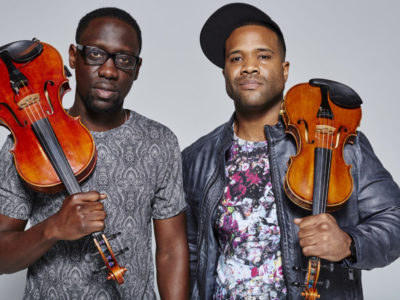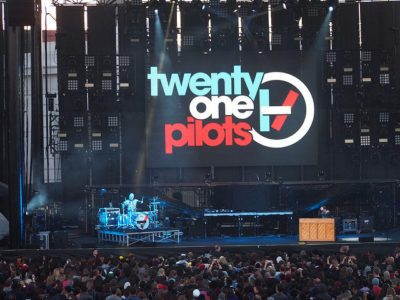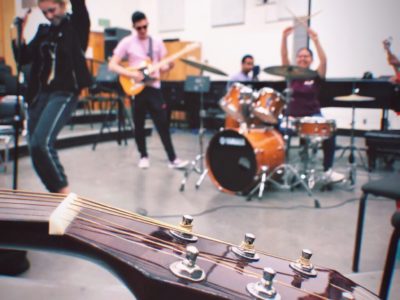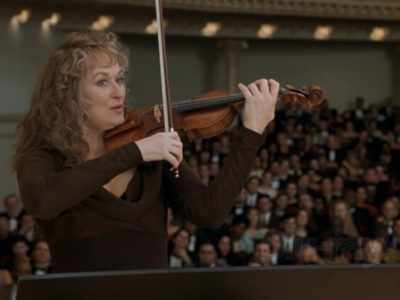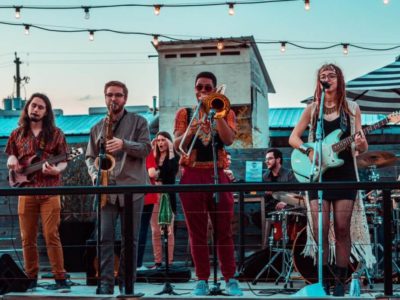This post is sponsored by The NAMM Foundation.
Black Violin reaches beyond the orchestra fanatic. Duo Wil B. and Kev Marcus take their classical music training and mix it with hip hop for a one-of-a-kind strings experience. Check out our interview with Wil B. and then catch Black Violin’s performance at The NAMM Foundation Celebration for Music Education in Anaheim California on January 24 at 6 p.m. Register for The NAMM Show 2019 today!
College Magazine: We’re excited for your upcoming performance at The NAMM Foundation Celebration for Music Education. Why do you feel music education is so important?
Wil B: When you can have a platform to express yourself, it opens up so much of a person. Not to say that person is going to be a musician. I don’t think that matters as much as the idea that [the arts let] you be yourself and open up. I think that’s why it’s crucial that the arts, not just music, are highlighted more in school systems. It’s so necessary, particularly nowadays. Kids need outreach. They need ways to express themselves because social media clouds them to think that it’s real. They need something tangible, and the arts typically helps with that.
CM: How do you think your outreach work has impacted music students?
WB: I think it’s been incredibly impactful; we see it every day. We see how inspired they are to take on anything. That’s what our music shows, that you can do anything. We combine hip-hop and classical music in a way that everyone can appreciate it. That message conveys to younger generations of kids in a way that’s relatable to them… People are visual; you have to show it to them.
There’s these two kids from South Florida that play violin. They’re going into it as a profession solely because they saw us play 12 years ago and went to same high school we did. [We call them] “Mini Black Violin.” They’re doing their own thing but the inspiration came from what we did.
We will definitely continue to do [music education outreach] because we have a platform and a voice. It might not be as loud as others, but it’s loud enough that we have to take advantage. We see the power that we have. Not to be corny, but with great power comes great responsibility. We see the impact we have with kids and adults. I’m not doing anything special; I’m just going on stage and doing what I do. Hopefully we can have a world of huge thinkers and a world of kids and their dreams change the world in a positive way.
CM: You intended to study the saxophone, but accidentally got placed in a viola class. What drew you to stick with the viola?
WB: Viola was a reason to keep going; it kept me focused. I was always looking forward to just going to school and playing. The idea of classical music was very different in general from what I’ve known. It felt special to be in that world, playing viola.
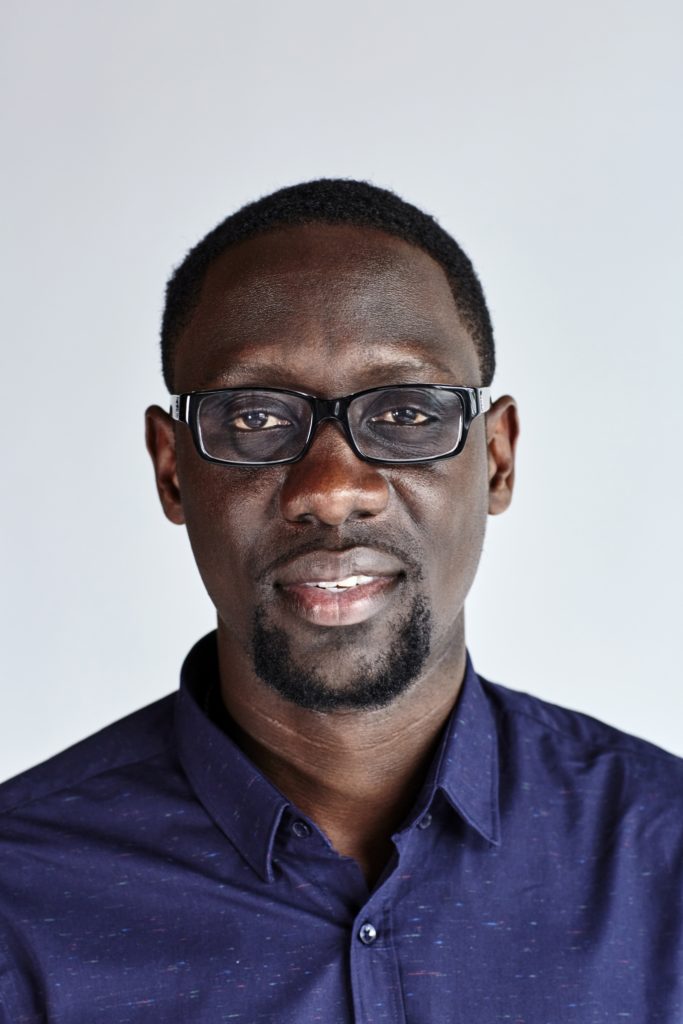
CM: How did your education influence Black Violin’s style?
WB: My high school influenced our music. Dillard High School, I went to was very urban, probably 90 percent black and Hispanic students. Going to FSU was very different, I didn’t know any black kids. Luckily, my teacher in high school prepared me very well. Playing in the orchestra and technique classes were easy, so I went on to do what I did in high school at Florida State.
CM: How did your experiences at FSU help you grow as an artist?
WB: I think that helped me to open up more to be open to people from different backgrounds.
CM: What were you trying to accomplish with the “Street Series” videos and your recent video, “Dreamers”?
WB: The street videos were really [about] having fun. We were in a random country and we wanted to do something unexpected. [So we] played violin in a random country. [It was] definitely unexpected and I think it kind of flows into the whole “Dreamer” idea, too.
The point of “Dreamer” is to showcase the ability for someone to have something top of mind and see where that execution has taken them… We can’t forget what this country is supposed to be about. It’s supposed to be about the dreamers. That’s essentially who we all are… Your skin color shouldn’t matter; everyone should come in and have a dream, dream big and allow their dreams to come to fruition. It only helps the economy and everything else that builds this country to what it is.
CM: What do you think college students can do to advocate for musical education?
WB: College kids can go into the communities. If you were talking about football being taking away, the community would come together fast. Fans would go crazy. College students need to go into the community go to their parents and give examples of how music and the arts transformed them. [They can also] mentor kids and show how important and impactful music is. We’ve got to let our communities know they have power as well. We can’t let programs get cut. They wouldn’t let basketball and football get cut. If they don’t see important [it is], we have to show them.
CM: Did you ever think about walking away from making music? And, if so, what was the challenge you faced?
WB: I never thought about walking away. Music is all that I really know. That’s all I care to do. I’m thankful that I’m able to do it in a way that is successful. And even if I was not successful, I would still do it.
CM: If you could give your younger self a piece of advice or encouragement at that time, what would it be?
WB: Be patient. Success will come. If it doesn’t come, it’s all good. Live life and be patient.
Find out what Black Violin is up to on Instagram, Facebook and Twitter.
Experience Black Violin live at The NAMM Show 2019. Music faculty and students can register through GenNext to attend the full weekend of networking, educational sessions, and concerts.
This post is sponsored by The NAMM Foundation.

